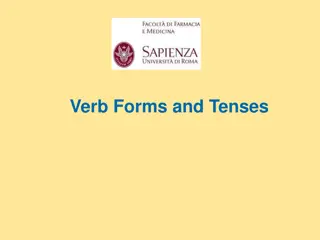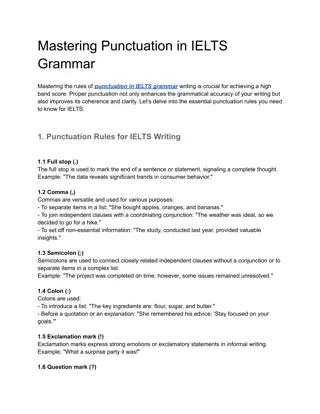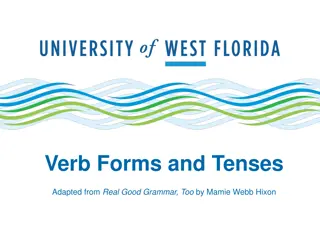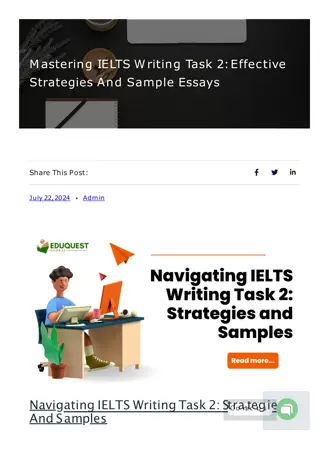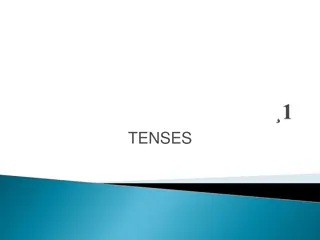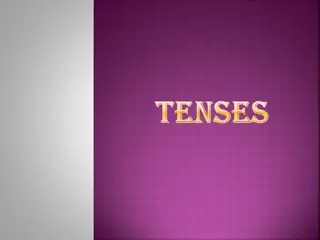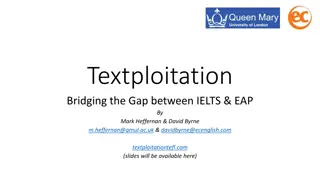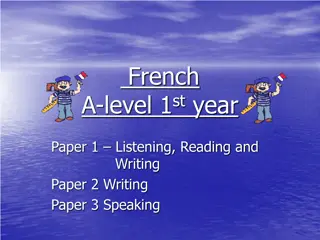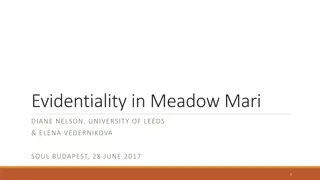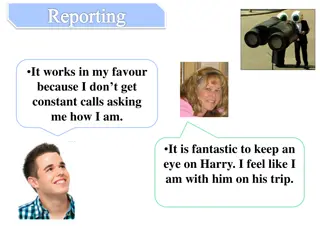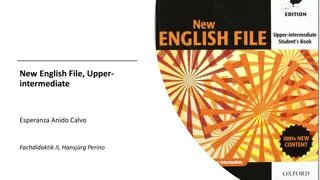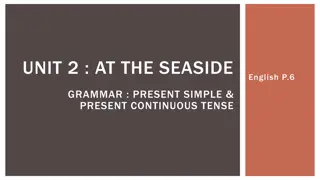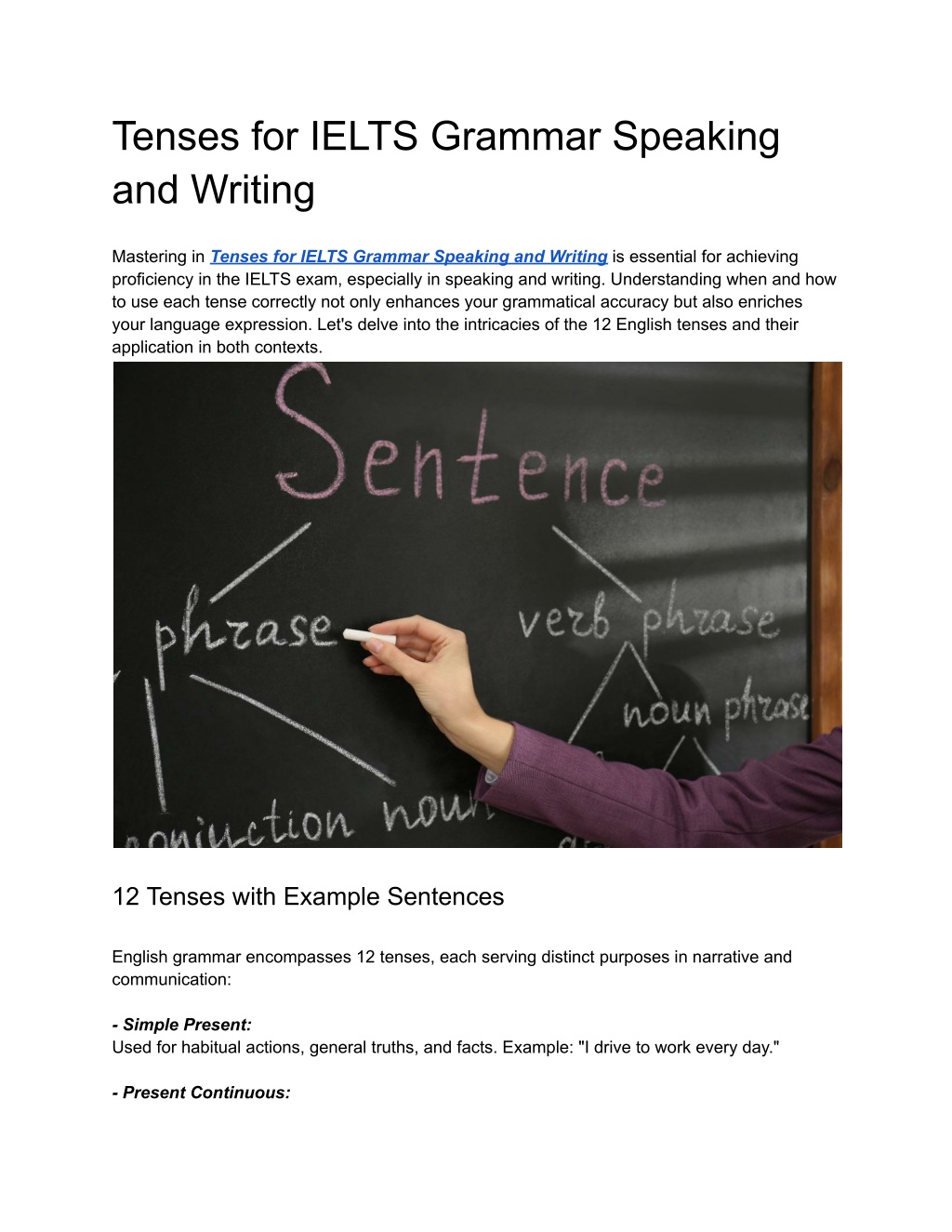
Tenses for IELTS Grammar Speaking and Writing
Mastering in Tenses for IELTS Grammar Speaking and Writing is essential for achieving proficiency in the IELTS exam, especially in speaking and writing. Understanding when and how to use each tense correctly not only enhances your grammatical accurac
Download Presentation

Please find below an Image/Link to download the presentation.
The content on the website is provided AS IS for your information and personal use only. It may not be sold, licensed, or shared on other websites without obtaining consent from the author. If you encounter any issues during the download, it is possible that the publisher has removed the file from their server.
You are allowed to download the files provided on this website for personal or commercial use, subject to the condition that they are used lawfully. All files are the property of their respective owners.
The content on the website is provided AS IS for your information and personal use only. It may not be sold, licensed, or shared on other websites without obtaining consent from the author.
E N D
Presentation Transcript
Tenses for IELTS Grammar Speaking and Writing Mastering in Tenses for IELTS Grammar Speaking and Writing is essential for achieving proficiency in the IELTS exam, especially in speaking and writing. Understanding when and how to use each tense correctly not only enhances your grammatical accuracy but also enriches your language expression. Let's delve into the intricacies of the 12 English tenses and their application in both contexts. 12 Tenses with Example Sentences English grammar encompasses 12 tenses, each serving distinct purposes in narrative and communication: - Simple Present: Used for habitual actions, general truths, and facts. Example: "I drive to work every day." - Present Continuous:
Indicates actions happening at the moment of speaking or ongoing. Example: "I am studying for the IELTS exam at the moment." - Present Perfect: Connects past actions with present relevance. Example: "I have completed most of the work already." - Present Perfect Continuous: Shows actions starting in the past and continuing to the present. Example: "I have been working on this project for weeks now." - Simple Past: Describes completed actions at a specific time in the past. Example: "I bought a car last year." - Past Continuous: Depicts actions in progress at a specific time in the past. Example: "I was reading a book when the phone rang." -Past Perfect: Expresses actions completed before another action in the past. Example: "I had worked in marketing before I quit last year." - Past Perfect Continuous: Indicates actions ongoing until another point in the past. Example: "I had been working on the project for months before I gave up." - Simple Future: Predicts future actions or decisions. Example with 'will': "I will probably have leftovers for dinner this evening." Example with 'going to': "I am going to be staying with my mother for a few weeks." - Future Continuous: Describes actions in progress at a specific future time. Example: "I am going to be staying with my mother for a few weeks this coming holiday." - Future Perfect: Shows actions to be completed before a specific future time. Example: "I will have finished this book by then." - Future Perfect Continuous: Indicates actions ongoing until a specific future time. Example: "I will have been working for this company for 3 years in August next year."
What tenses should be used in IELTS? In both speaking and writing sections of the IELTS exam, choosing the appropriate tense enhances coherence and cohesion of your responses. Speaking Section: - Speaking Part 1: Respond to simple past or present questions straightforwardly. Example: "Did you play any sports as a child?" Response: "I was very active and enjoyed outdoor activities." - Speaking Part 2 (Cue Card): Use a variety of tenses to narrate a story or experience. Example: "Describe a job that one of your grandparents did." Response: "My grandfather owned a restaurant; it was popular and required dedication." - Speaking Part 3: Provide opinions in present tense, with occasional past or future references. Example: "What do you think of people who achieve success independently?" Response: "They demonstrate resilience and serve as inspiration." Writing Section: - Academic Writing Task 1: Use past and present tenses to describe trends and data accurately. Example: "The graph shows an increase in visitors to Cardiff." -GT Writing Task 1 (Letter): Use varied tenses based on the topic, such as past for recounting events or present for requests. Example: "I am writing to ask for your help in organizing an event." - Writing Task 2 (Essay): Primarily use present tense to argue or state opinions, with past or future tenses for supporting ideas or predictions. Example: "Scientists are valued more than artists due to their contributions to innovation." Conclusion
Mastering tenses in English is pivotal for achieving a high score in the IELTS exam. By understanding the nuances of each tense and practicing their application in both speaking and writing, you can enhance your grammatical range and accuracy. Remember, it's not about using all 12 tenses in every response but using them correctly and naturally to convey your ideas effectively. With diligent practice and a clear understanding of when to employ each tense, you can confidently navigate the linguistic challenges of the IELTS exam. For More Information,Visit: https://edubenchmark.com/blog/tenses-for-ielts-speaking-writing/

